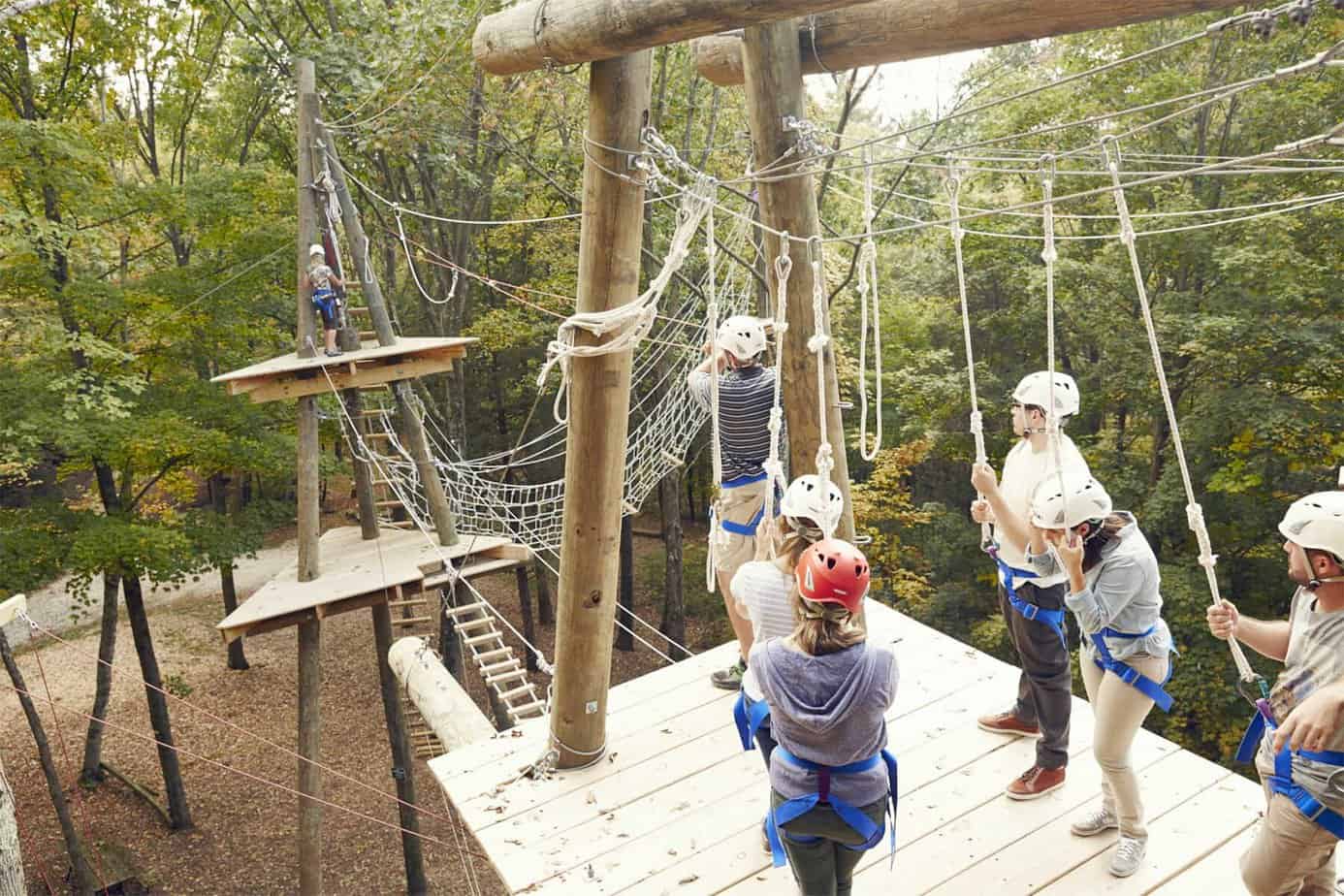The warm sun on your face, the sound of wind rustling through the trees, and dirt crunching on the trail underneath your shoes. Hiking is proven to have a range of physical and mental health benefits. The great thing about this exercise is that you don’t need to be a seasoned athlete or live near a mountain to reap the positive effects. Find a local park or community garden where you can casually stroll and soak up the nature all around you.
Why Hike?
Hiking is an accessible form of physical activity—particularly because you don’t need much to get started and is adaptable to your fitness level. Research also shows that adults who spend 120 minutes every week in nature report higher psychological well-being and less stress. Taking a hike ensures that you get your time in greenery among other benefits such as:
- Improves cardiovascular health – Hiking usually includes changes in elevation, steep ascents, and descents. These variations in terrain and intensity challenge your cardiovascular system by requiring it to adapt to different levels of effort. Over time, your heart and lungs strengthen, reducing your risk of heart disease.
- Burns calories – Whether you are walking along a flat path or a rocky incline, you are burning calories and working your muscles. Hiking is a full-body workout that can help you maintain a healthy weight.
- Build balance and coordination – Walking on windy trails and uneven terrain strengthens your leg muscles and balance.
- Uplifted mood – Research shows that spending time in nature is linked to both cognitive benefits and improvements in mood, mental health, and emotional well-being.
- Stress reduction – Immersing yourself in nature and disconnecting from all the responsibilities of your hectic life can decrease stress levels. Scenic views, soothing sounds of birds or flowing water, and the absence of urban noise contribute to a calming experience.
- Minimize anxiety and depression – Studies show that walking in nature helps you decrease negative, obsessive thoughts while walking in urban areas does not. Hiking will probably not make all your bad thoughts disappear, but it will allow you to process them in a peaceful environment.
- Connect with friends – One of the benefits of hiking is that it can very much be a social activity. You can ask your friends to try out new trails, but you can also meet up with new people in hiking groups on social media. It’s a great way to connect with others on a deep level and appreciate the outdoors together.
How Do You Prepare for a Hike?
Whether you are a novice or looking for a new activity in nature, let’s start with the hiking basics:
1. Choose a trail that matches your fitness level and experience.
You should decide on the length of the hike, the distance you’ll cover, and the elevation change. If you’re a beginner, look for shorter, well-marked, and easy-to-navigate trails. Research local or state parks and consider seeking advice from experienced hikers or park rangers for recommendations on suitable routes. AllTrails.com has a simple website and app where users can find nearby trails that are all verified by experts and be a part of a fun, active community.
2. Get comfortable hiking shoes or boots.
Hiking boots are not a must, especially if you are a beginner. You can probably hike in your favorite pair of sneakers just fine. However, if you are heading onto a rocky or rugged terrain, it is best to buy shoes with good traction and support.
3. Pack essential items.
Having the right hiking gear can help prepare you for unexpected situations and bad weather. You should invest in a comfortable backpack, not too heavy with a lot of space. Even if it looks like a sunny day, you never know when rainy weather can strike so it’s a good idea to pack a light rain jacket that fits inside your bag. A first-aid kit, knife, flashlight, whistle, and portable phone charger are all important tools in case of emergencies. Lastly, we recommend bringing sunscreen, sunglasses, and bug spray to shield yourself from the sun and pesky insects.
4. Bring plenty of food and water.
Fill up a reusable bottle with enough water to keep you hydrated throughout the day. Sources of simple carbs, like graham crackers, energy bars, or bananas, can also provide energy without weighing heavy on your stomach.
5. Invite a group of people or go solo.
If you’re feeling intimidated by hiking, ask a more experienced friend to go with you or research organizations in your area that do group hikes. You can meet people with the same interests and connect with folks who can recommend trails and give you tips on how to have a successful hike.
6. Get outside and enjoy the view!
Now it’s time for the hike! You can start off slow and go at your own pace. With each hike, you’ll build confidence and experience, enabling you to try more challenging trails and truly immerse yourself in the outdoors. Navigating the woods is not just a physical activity; it’s a journey of self-discovery and a path to reconnecting with nature.
Are Hiking and Addiction Recovery Connected?
Hiking is part of nature-based therapy, a holistic approach to addiction recovery that harnesses the healing power of the natural world.
Hiking enables you to reconnect with yourself and your surroundings. It promotes mindfulness, reducing stress, anxiety, and depression, which are often triggers for relapse. Hiking also gives you a boost of self-esteem as you conquer new trails and challenge yourself. This raised confidence and the natural high that comes along with physical activity can be a healthy replacement for the euphoria sought in drugs or alcohol.
Strolling through the woods or local parks can be enjoyed almost anywhere as part of a sober lifestyle. Hiking is a hobby that can be used to alleviate anxiety and other obstacles to ongoing recovery. Some rehabs may place a big focus on “forest bathing” which is when you enter a natural space without any distractions and take in everything your senses can digest so you can have an even more mindful experience in the natural world.
Mountainside incorporates hiking into each client’s wellness plan if it’s appropriate to help them develop coping skills and healthy behaviors in their everyday life. Remember you don’t need to be a professional athlete to start experiencing the benefits of hiking. Step outside and reconnect with nature today!
If you or a loved one is struggling with addiction, Mountainside can help.
Click here or call (888) 833-4676 to speak with one of our addiction treatment experts.

 By
By 






